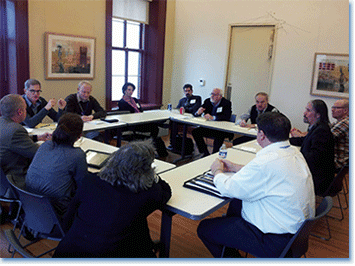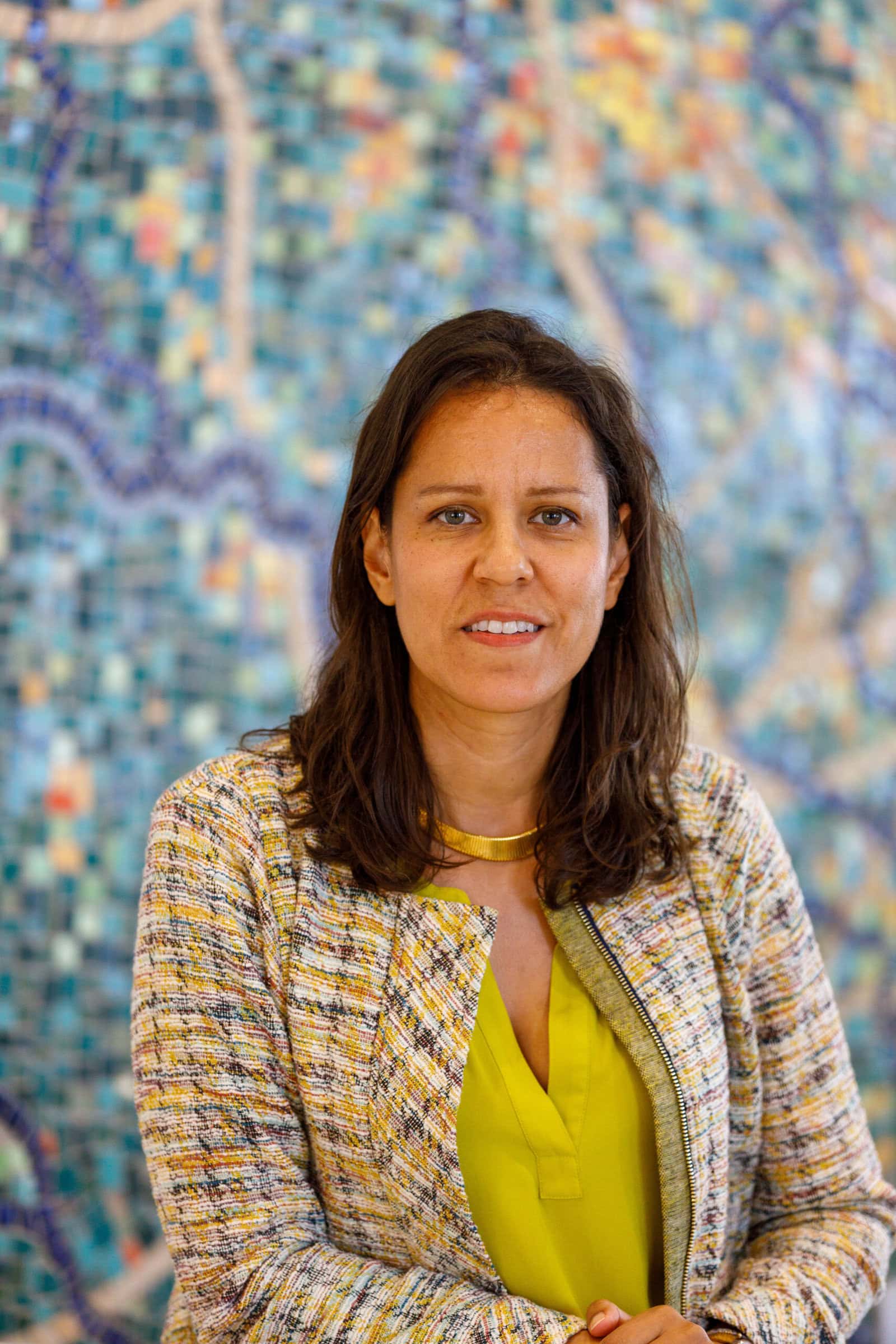In the face of wintry weather in some states and a chilly political climate for the humanities in others, dozens of historians shared the warmth of professional community near the AHA offices on Capitol Hill earlier this month. Faculty members from across the country who are active in the AHA’s three-year Tuning project convened from February 15–17 to share their expertise on issues that have been emerging on individual campuses, and to hone a broad, positive message about historical study for public audiences.

Tuning project members discuss the history curriculum at meetings held in February in Washington, DC. Photo by Vanessa Varin.
More than 20 topical workshops and discussions formed most of agenda for the busy two-day meeting. The themes emerged from the challenges and success stories that participants reported when implementing a range of Tuning-inspired processes last fall. Some of these questions were ones that historians at every institution might consider, such as, “What models do we have for the roles that history can play in the general education core, and how do different models affect student learning outcomes?”
Two sessions centered on major recruitment, advising, and student retention—a set of issues that are closely related in many programs. In the first of these, William Storey (Millsaps Coll.) and Teresa Blue Holden (Greenville Coll.) led participants to consider practical steps that faculty can take to foster a holistic sense of “intellectual hospitality” that draws students into history and helps to keep them connected to each other and to faculty and staff in the department or unit. AHA Deputy Director Robert Townsend presented on how individual participants might effectively conduct surveys of current history students and alumni, and Executive Director James Grossman and Tracy Neal Leavelle (Creighton Univ.) led a discussion about how historians at colleges and universities can reach out to local and regional employers on behalf of their students.
Other meeting sessions considered questions that particular faculty members or units encounter and prioritize differently. These included, for example, teaching history online or in hybrid courses, how the learning outcomes for a history MA compare to undergraduate and doctoral program outcomes, strategies for working productively on curricular goals if your colleagues are demoralized or fractious, using rubrics and assessment tools for different course levels, and how to structure the “middle” of the history BA, between the introductory courses and the capstone project. Several two- and four-year faculty members discussed their ideas for how to support the transfer of students who start their post-secondary careers at community colleges, where there is often no formal major, and go on to make up close to half the history majors at some four-year institutions. Similarly, Linda Salvucci (Trinity Univ.) led a discussion on how learning outcomes for K–12 schools do and do not match up with faculty expectations for learning outcomes at the postsecondary levels. Participants valued the chance to talk about these and other concerns with faculty from other institutions, and under the aegis of a national professional organization.
Several plenary sessions punctuated the series of smaller conversations. Patricia Nelson Limerick (Univ. of Colorado Boulder) presented an incisive and wry case for how a history major can arm students with the skills they need to impress employers, as well as how historians are well-situated to give students the education they need on civic and personal responsibility. Limerick also led a workshop on how to write editorials for the popular press, based on her decades of experience with this genre that many academics find difficult to master.
In another meeting plenary, James Grossman and Carol Geary Schneider, president of the Association of American Colleges and Universities (AAC&U), engaged in a thoughtful and wide-ranging dialogue. Schneider, herself a history PhD, discussed the AAC&U’s initiative on learning outcomes across the curriculum, called the Degree Qualifications Profile (DQP), as well as the purpose of disciplinary specializations, the relationship between the humanities and sciences in higher learning, and the role of colleges and universities in educating citizens for a democracy.
As the Tuners dispersed to return home at the end of two days, they took with them tools to enliven and improve students’ experience of history programs at a dizzyingly diverse array of institutions, plans to help graduates obtain rewarding employment, and strategies to advocate for deeper historical consciousness throughout their local communities. Over the coming months, participating faculty will continue to gather feedback from students and outside stakeholders and to discuss their curricula with colleagues. Based on these discussions, they will begin to develop unique statements that describe each history degree program or track at their institution.
This work is licensed under a Creative Commons Attribution-NonCommercial-NoDerivatives 4.0 International License. Attribution must provide author name, article title, Perspectives on History, date of publication, and a link to this page. This license applies only to the article, not to text or images used here by permission.



